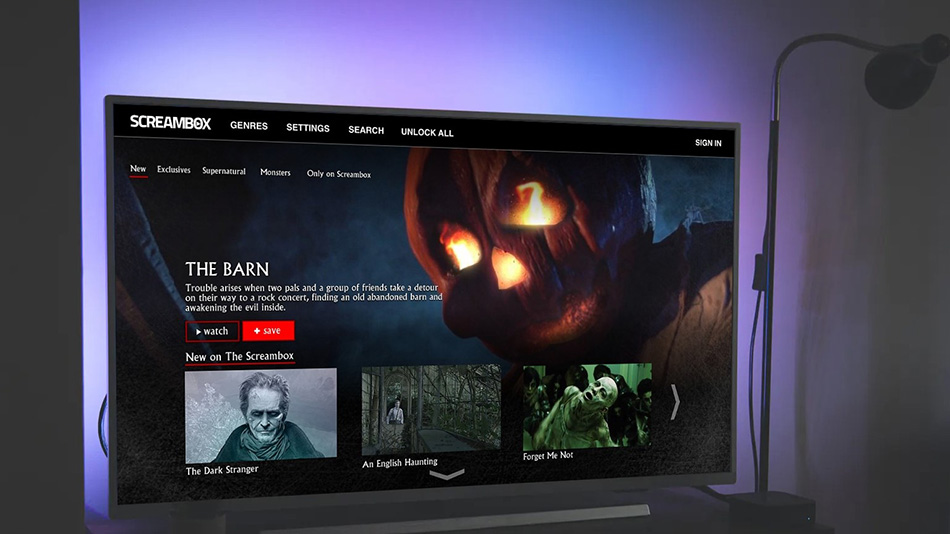Cinedigm’s Streaming Strategy Starts to Pay Off
Company plans to launch new channels, expand into digital businesses

The smarter way to stay on top of broadcasting and cable industry. Sign up below
You are now subscribed
Your newsletter sign-up was successful
There’s a lot going on at Cinedigm, which, through a recent series of acquisitions, has built itself into a clean, mean streaming machine.
Cinedigm has plans to expand its footprint with new channels. Some of those may be built around iconic pop celebrities (think Elvis Presley or Marilyn Monroe) with estates that want to leverage their brands with linear or on-demand channels. Cinedigm is also looking to build networks around some of the best-known sports leagues and teams.
With viewers cutting the cord and the opportunities for subscriber fees melting away, Cinedigm wants to be the catalyst for taking lower-tier cable networks over the top.
In March, Cinedigm said it reached 23.8 million viewers, up 208% from last year. It streamed 423 million minutes, up 305%, Total subscribers to its streaming services topped 640,000, up 574%.
“We’re really well-positioned for growth now both organically and through our acquisition strategy,” chairman and CEO Chris McGurk said.

Beyond streaming, Cinedigm is eying live experiences, virtual screenings and podcasts, and it has 10,000 digital comics in its library.
Cinedigm is also going to jump into the hot market for non-fungible tokens. NFTs are units of data stored on a digital ledger, called a blockchain, which certifies those assets to be unique and (unlike, say, bitcoin) not interchangeable.
The smarter way to stay on top of broadcasting and cable industry. Sign up below
“If we’re not in the NFT business, which we think is a big, big business with our team of engineers and our digital expertise, there’s something wrong with us,” McGurk said. “We have an enormous amount of collectible content,” he said, pointing to 10,000 digital comics and a library of tens of thousands of films and TV episodes.
Cinedigm will use the NFTs to build a loyalty program for its subscription business, he said.
A Digital First-Mover
Cinedigm has been in the middle of the digitization of the entertainment industry since it was founded 21 years ago, originally converting movie theaters from film to digital projection.
“The challenge for the company was, how do you take the digital technology and expertise that was in the company’s DNA and its relationships and convert that into a growth business?” said McGurk, who became CEO in 2011. Netflix and Hulu had already launched, and Cinedigm started to turn itself from a digital home-entertainment company into a streaming company through a series of acquisitions that brought it technology and content. It started streaming in 2015. It also sold off most of its non-streaming assets.
“We make money off the streaming ecosystem in more ways than anybody,” McGurk said. Cinedigm’s channels are a mix of subscription, ad-supported VOD and free ad-supported linear television (FAST) channels. They bring in both advertising and subscription revenues.
On top of that, Cinedigm has a large library of digital rights to movies that it sells to Amazon, Netflix and everyone else. “That business is going great guns,” McGurk said.
Cinedigm also sells its streaming technology, called MatchPoint. ‘“It really gives us a leg up on everybody else,” he said.
In one of its recent deals, Cinedigm bought out Foundation TV, its partner in developing MatchPoint. “We wanted to control all that IP and be able to direct the effort to take everything to another level on a global basis,” McGurk said.
In 2017, Bison Capital Holding Co. China bought an 80% stake in Cinedigm. Earlier this year, it announced that Chinese investors now own less than 20% of the company. Being Chinese-owned would have subjected Cinedigm to more stringent regulation, making its acquisition strategy more difficult to execute, McGurk said.
The deal also left Cinedigm with a stronger balance sheet and less debt, he said.
In its fiscal third-quarter ending in December, Cinedigm lost $9.7 million on revenues of $10 million. At this point, McGurk said, the company has streamlined its operation and is investing in growth, rather than prioritizing positive cash flow.
Worldwide Ambitions
Cinedigm is becoming a “clean, mean, streaming machine with global dreams,” The Benchmark Co. equity research analyst Daniel Kurnos said in a report issued in February.
A year ago, Kurnos said, Cinedigm was majority owned by Chinese investors and had a tiny streaming business. “Cinedigm has completely flipped the script, featuring a strong net cash (nearly recourse debt-free) balance sheet, a much cleaner ownership structure and posting fiscal third-quarter results which significantly exceed expectations,” he said.

“All this leaves Cinedigm, in our view, with a stronger negotiating position to continue and potentially accelerate their streaming acquisition roll-up strategy, which has already paid dividends in the fourth quarter,” Kurnos added. “Layer in a rapidly growing international linear opportunity and a long-awaited EBITDA [earnings before interest, taxes, depreciation and amortization] pivot, and it feels like the party is just getting started.”
Cinedigm has been building distribution for its roughly 17 streaming channels. Unlike Netflix or The Walt Disney Co., Cinedigm’s channels are more niche. “We believe we are completely complementary to the big general-entertainment channels,” Cinedigm chief strategy officer Erick Opeka said.
The company calls them “enthusiast channels” for fans of documentary, indie films, horror movies, documentaries and anime. While Netflix makes a few thousand horror movies available, that’s just a fraction of the 125,000 that have been made.
“If you love horror, you want to be super-served with curation and deep, deep libraries,” Opeka said. “The major services are a mile wide and an inch deep, but we're going to go very deep.”
Reopening Screambox
Speaking of horror, Cinedigm will be relaunching Screambox, which it acquired in February. It is also putting together a bigger and better Fandor, a subscription service it bought in January. Other recent acquisitions include The Film Detective and the Films Around the World library.
Cinedigm’s Chinese connections paid off in April, when the company launched a new streaming channel with Fantawild, a large Chinese theme-park operator and a major animation company there. The channel launched on sets made by Chinese manufacturer TCL, FreeCast and Klowd TV.

The latest film in Fantawild’s Boonie Bears franchise, Boonie Bears: The Wild Life, which grossed $90 million at the box office in China, will be released by Cinedigm for digital purchase and rental before landing on the new linear channel.
Cinedigm is starting to dip its toe into putting original shows on its platforms, Opeka said. The company announced last month that the thriller The Island from ZDF Enterprises will debut exclusively on Screambox.
Cinedigm plans to continue adding exclusively licensed international productions and getting involved in co-productions. “We’re probably going to ramp that business up,” Opeka said. “We have five or six other potential opportunities on that front.”
The Bob Ross Channel, which has become Cinedigm’s most successful offering, might get some original programming. The company is talking to the estate of the iconic longtime host of PBS’s The Joy of Painting about new shows that could be produced at low cost, Opeka said.

Although niche, Opeka thinks the type of channels Cinedigm is building can become substantial.
“They could end up having tens of millions of subscribers globally, or dozens of monthly viewers, in an ad-supported environment,” he said. “And these are things that transcend borders.”
He pointed to the success of niche services like Crunchyroll and BritBox. “Those are really nice businesses,” he said. Crunchyroll is in the process of being sold by AT&T to Sony’s Funimation for $1.2 billion. AT&T regarded Crunchyroll as a distraction.
“If billion-dollar businesses are a distraction, we want to be in the distraction business,” Opeka said.
Growing Concern
With its growth, Cinedigm has been hiring at a time when many companies in the entertainment business have been cutting thousands of staffers loose.
“We're gonna double the size of our workforce by 2022,” McGurk said. “So we're able to bring a lot of new talented people into the company now to help take the company to another level because we’re growing by leaps and bounds.”
The growth will continue if cord-cutting continues, or as Opeka expects, accelerates.
Opeka said the best things on traditional pay TV — even sports — are moving to streaming as the big media companies cherry-pick their assets to feed their new direct-to-consumer businesses.
While many predict pay TV will bottom out with 50 million to 60 million subscribers, “I think it’s more like 35 million to 40 million and I’m obviously bullish on streaming,” Opeka said.
Streaming might even be the answer for cable channels desperately trying to hold onto their subscriber fees. Opeka said Cinedigm can reimagine cable channels with strong brands as FAST networks.
“You look at the bottom tier of the cable universe and there are hundreds of channels globally that will eventually lose their carriage fee-based deals and they're going to have to make a choice,” he said. “Either they adapt to the new FAST and on-demand and subscription environment, or they shut down.”
Jon has been business editor of Broadcasting+Cable since 2010. He focuses on revenue-generating activities, including advertising and distribution, as well as executive intrigue and merger and acquisition activity. Just about any story is fair game, if a dollar sign can make its way into the article. Before B+C, Jon covered the industry for TVWeek, Cable World, Electronic Media, Advertising Age and The New York Post. A native New Yorker, Jon is hiding in plain sight in the suburbs of Chicago.

